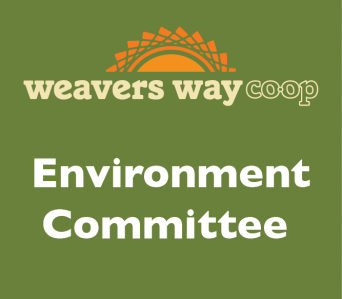
Give the Earth the Gift of a Plastic-Free Holiday
Plastic is forever. Let that fact sink in.
You say, “but I recycle,” which is often meaningless. Since China now is not accepting most of our plastic waste, it ends up in the landfill or in our oceans.
Recycling is mostly a feel-good activity. In the United States, we leave 32 million tons of plastic waste in our landfills and waterways yearly, which contributes to more than 270,000 tons floating in the ocean. Plastic pieces outnumber sea life six to one in the North Pacific Gyre off the coast of California. One million sea birds and 10,000 marine mammals are killed each year from the plastic you and I throw away. We are responsible for their deaths, whether or not we admit it.
Picture your festivities this holiday. What do you see? It’s likely you and yours will be unwrapping presents, creating mountains of gift wrap, cards, ribbon and packaging materials. Wouldn’t we be kinder to our fellow creatures if we wasted less, especially plastic, during the holidays?
Below are some suggestions, some of which are from the Plastic Pollution Coalition:
- You’re probably going to use real plates, cups and utensils when entertaining. But what about family and friends? Can you convince them to avoid throwaway containers? About a third of our solid waste is made up of food containers and packaging. Also, avoid plastic straws, which are one of the most common items found on beaches.
- Avoid gifts in plastic clamshells/oyster packaging, which will likely head directly to the landfill. Find gifts that are unpackaged, or give “experience” gifts instead. Avoid overpackaged items. Remember, you’re buying the packaging along with the gift.
- Online gifts usually arrive in multiple packages with bubble wrap or styrofoam peanuts. You can request minimum packaging at some stores. If you end up with unwanted packaging, you can donate it to mailing stores.
- Use newspaper, recycled paper or even fabric to wrap gifts. Instead of plastic, use twine or cloth ribbons to secure the wrapping. I use the comics pages.
- Avoid plastic decorations like “fake snow,” which is made from finely ground polystyrene, a possible human carcinogen and environmental pollutant that lasts forever. Use real garlands over plastic.
- Buy toys made of wood and other natural materials for children instead of plastic. Keep in mind that plastics contain chemicals like phthalates and bisphenol A, which are harmful endocrine disruptors. Plastic can be absorbed by our bodies; 93% of Americans test positive for BPA.
- When you purchase your non-plastic item, tell the clerk beforehand that you don’t want a sales slip if you don’t need it. Sales slips are not recyclable because they are coated with plastic BPA or BPS.
- If you’re giving clothes, choose natural fibers like linen, cotton, silk or wool over synthetics. Polyester, rayon and nylon fabrics are made of thousands of tiny, plastic microfibers. Almost 2,000 microfibers from one piece of clothing go into our water system each time it is washed. It’s best to give or trade gently used clothing.
- Give baked goods and homemade gifts without using plastic wrapping.
- Refrain from purchasing unnecessary plastic. Some beauty products like face wash can contain around 300,000 plastic microbeads, which end up in streams and oceans. If the item says “ex-foliant” or “scrub,” it contains plastic microbeads. Most cleansers, face and body washes, and even some deep-cleaning toothpastes contain plastic beads as well. Check individual websites for ingredients.
Most important, spread the word to family, neighbors and friends. They may not realize the harm they cause to marine life when they use plastic freely.
I wish the United States was as forward-thinking as Rwanda. There, it is illegal to import, produce, use or sell plastic bags or packaging except for hospitals and pharmaceuticals. Worldwide, more than one million plastic bags are used every minute. While 15 African countries have some kind of ban on plastic bags, they don’t enforce them. Rawandan children are taught in school not to use plastic bags and to appreciate the environment. People can be fined up to $19,000 or spend as much as four years in jail for selling or manufacturing plastic.
Every piece of plastic that was ever made still exists in some form today and much of it is killing or injuring birds, turtles and other marine life. Eventually, it hurts us, too.
Have a Happy Plastic-less Holiday.
